- 翻译公司资讯
-
“我来说说金庸为何在西方一直不火!”
发布时间:2018-11-02 15:53 点击:
金庸先生与世长辞,让许多人为之遗憾惋惜。
而今天,一篇刊登在香港媒体的文章,却在悼念金庸的文章中显得很是“特别”……
金庸的作品对于华人以及东亚文化圈,有着重要而深远的影响。
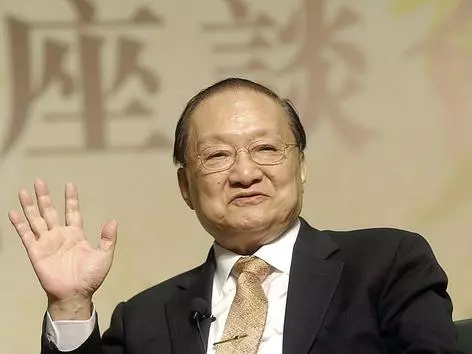
但是……在这个范围之外,尤其是西方国家的读者,他们能看懂金庸笔下的江湖吗?他们是否能get中国独特的武侠文化?
他们……究竟喜欢金庸的作品吗?

目前,在金庸作品翻译成英文的人当中,下面这个名叫“郝玉青”的姑娘名气不小——

▲郝玉青(Anna Holmwood)
今年初,郝玉青翻译的《射雕英雄传》:Legends of Condor Heroes, 终于在海外上市,引起了不少人关注。
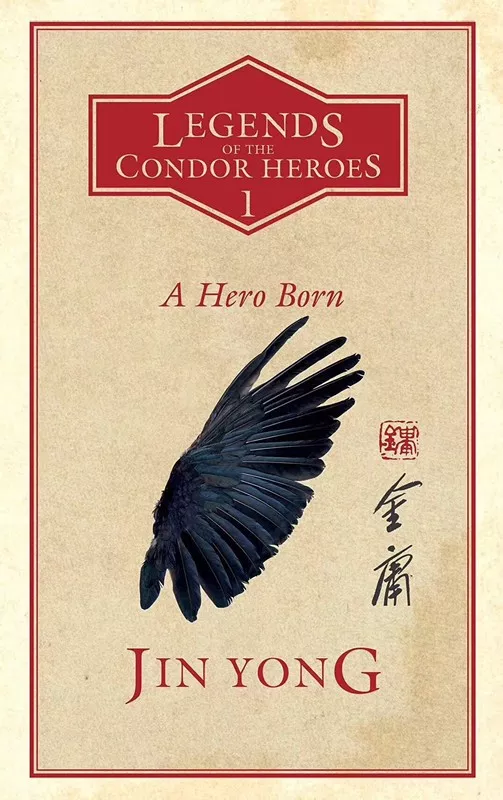
▲Legends of Condor Heroes(第一卷)
在金庸先生去世的消息传出后,许多媒体也在Twitter上联系郝玉青,希望能采访到她。



但是,目前没能看到她的任何正式发声。
不过,翻译过金庸著作的并不只有郝玉青。
一位名叫晏格文(Graham Earnshaw)的英国汉子,就曾翻译过金庸早期作品《书剑恩仇录》,据说还得到过金庸先生本人的称赞。

▲Graham Earnshaw
今天中午,在金庸去世的消息刷屏一天半以后,他突然在香港《南华早报》上发表了一篇很高能的文章——
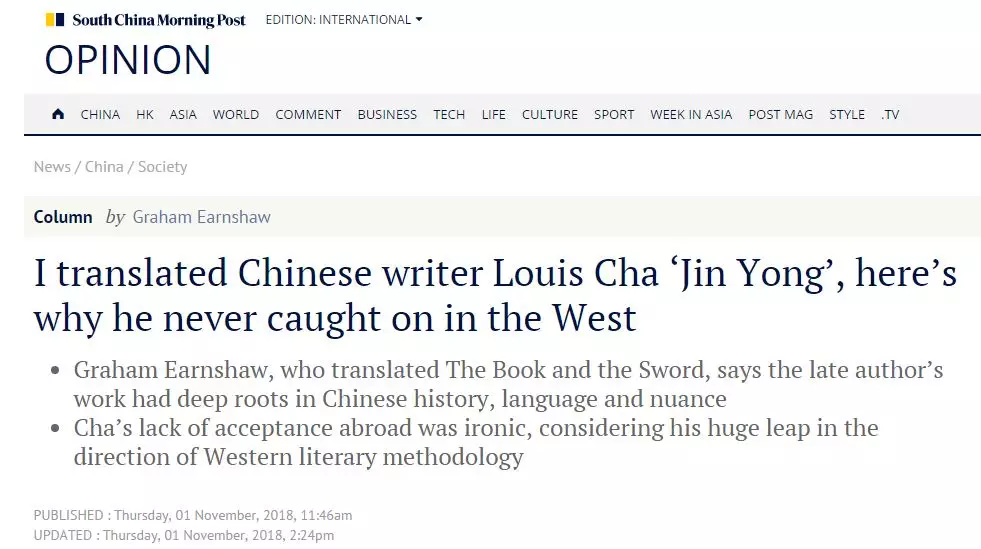
▲我翻译过金庸的作品,我来说说他为何在西方一直不火 (via South China Morning Post)
“never caught on in the West”,这个形容真的很不委婉了。
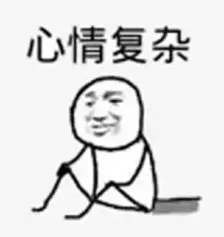
而这也不禁让人思考:金庸的作品,或者说中国的武侠概念,在西方世界真的难以得到认可吗?

毕竟,在很多人心目中,金庸是最适合得诺贝尔文学奖的人。但他并没有得到过:
....visit the Nobel Prize committee and say it was time for a Chinese writer to get the prize for literature, and ...believed Jin Yong, Cha’s pen name, was the right writer to be honoured.
曾有人拜访过诺贝尔奖委员会,说认为金庸理当获此殊荣。
“...they declined,” Cha said.
“他们拒绝了。”金庸回忆道。
▲I translated Chinese writer Louis Cha ‘Jin Yong’, here’s why he never caught on in the West
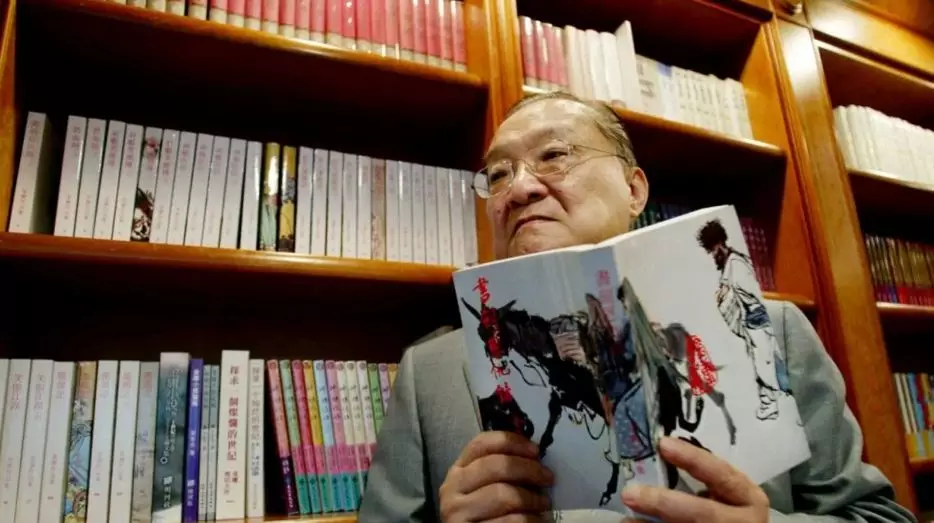
(图viaSCMP)
而且,不仅诺贝尔奖与金庸先生无缘,连金庸作品的翻译工作都充满了波折……
Cha and OUP had created a plan with the master translator John Minford, who had done a large part of The Story of the Stone – an English version of Dream of the Red Chamber. The plan was that John would translate the entire Jin Yong oeuvre for OUP, the only exception, at Cha’s insistence, being The Book and the Sword.
金庸曾和牛津大学出版社制定过一项计划,由《石头记》(红楼梦)的英文翻译大师闵福德来 翻译金庸的所有作品,并由牛津来出版。只有《书剑恩仇录》在金庸自己的坚持下,不在这项翻译计划里。(主页君注:有可能《书剑恩仇录》是选择出版晏格文的翻译版本,故而不再由闵福德翻译)
John did the first book to be published in the series, The Deer and the Cauldron, the last of Cha’s novels; mine was the second, published in 2004.
闵福德的确翻译了《鹿鼎记》,并且出版了。接着是我翻译的《书剑恩仇录》,2004年出版了。
The rest were never done by OUP, for reasons I am not privy to.
可是, 牛津自此之后没有再出版过任何金庸的作品。我也不知道为什么。
▲I translated Chinese writer Louis Cha ‘Jin Yong’, here’s why he never caught on in the West
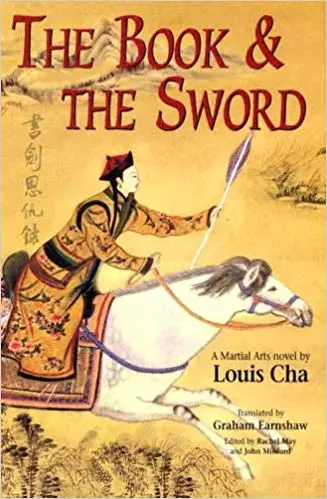
▲晏格文(本文作者)翻译的《书剑恩仇录》。说说你看到这个封面时的感想?
在这之后,就是前面提到的姑娘郝玉青。
她翻译了《射雕英雄传》,今年才由英国的Maclehose出版社出版——出版时距离金庸先生当初发表这部小说,已经过去60年了。
至于在其他国家的出版,晏格文说得也很直白——
But all of Mr Cha’s books have been re-published in a number of Asian languages, including Japanese, Korean and Vietnamese, the mother tongues of countries that share many of the cultural underpinnings of China.
但是,金庸所有的书都以多种亚洲语言重新出版,例如日语、韩语和越南语。 而这些国家的母语,都与中国有着相似的文化基础。
▲I translated Chinese writer Louis Cha ‘Jin Yong’, here’s why he never caught on in the West
也就是说,虽然金庸的作品享誉海外,但这个“海外”主要指的还是儒家文化圈的国家。
至于西方,可能连读到金庸译作的机会都不多,更别提成为“粉丝”了。据说牛津出版过的金庸译作,销量也较为一般。(“...the OUP edition sells steadily in small numbers”)
——这是为什么?金庸先生的作品如此经典、影响深远,为何西方世界如此不买账?

晏格文分析说,最主要的原因,还是西方读者不习惯、不喜欢甚至完全不明白中国武侠的写作方式——
Apart from the subject matter – often dramatic events from Chinese history that mean nothing elsewhere – the amount of deion and the things described and not described, I think, make it difficult for Western readers to relate to Cha’s work.
题材是一个原因。通常, 中国历史里的一些大事件,到了其他国家就难以引起关注了。除了题材之外,大量的描写,以及描述和未描述的事物,让西方读者很难get到金庸作品的“点”。
Cha was writing for a Chinese reader who could visualise scenes and clothes and situations that would require significant explanation to be clear for a non-Chinese reader.
金庸的读者,应该是那些能够通过他的文字联想出场景、服装、情节的中国人。而对于非中国读者来说, 有些内容你得有足够的解释才行。
The rules of dialogue were also somewhat different and the story arc didn’t necessarily match what a Western reader would expect. Some of the fight scenes go on and on and on.
此外,小说里人物 对话的方式,也和西方很不一样。 故事的发展也未必符合西方读者的预期。 打斗场面没完没了。
Some culturally specific plot developments, which made sense in Chinese terms, wouldn’t necessarily make sense to those who did not grow up in the culture.
而一些 文化上特定的情节发展,在中文语境里是讲得通的,但对于没在这种语境下长大的人来说, 就未必能get得到那些点了。
▲I translated Chinese writer Louis Cha ‘Jin Yong’, here’s why he never caught on in the West

对于上面说的“get不到点”,作者还当场举了个例子……
I am thinking – why, I wonder? – of how The Book and the Sword’s hero, Chen Jialuo, spends an enormous amount of time alone with the Fragrant Princess in the desert and never makes a move on her.
我在想啊……为啥—— 《书剑恩仇录》的主人公陈家洛,和香香公主在大漠里独处了那么长时间,咋从来没对她采取过行动呢?我很想知道啊!
▲I translated Chinese writer Louis Cha ‘Jin Yong’, here’s why he never caught on in the West
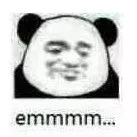
大漠上一到夜晚,气候便即奇冷。陈家洛找了些枯草树枝,生旺了火, 两人裹着毯子,各自睡了。两人睡处相隔很远,然而陈家洛在梦中似乎尽闻到那少女身上的幽香。
两人晓行夜宿,言笑不禁,日益融洽。陈家洛内心似乎隐隐盼望:“最好这条路永远走不到尽头,就这样走一辈子。”但这个念头却想也不敢去想,心头一现此意,向那纯洁无邪的少女望了一眼,登感自惭形秽, 但觉自己一介凡夫俗子,能陪得她同行数日,已是非分之福,岂可更有他求?
……这要是搁西方作者那里,俩人早*&%¥#@&*了无数次了吧?
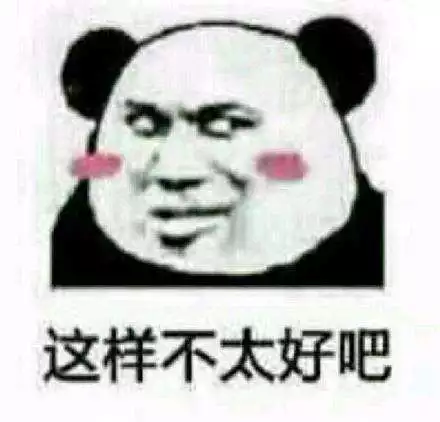
此外,站在翻译的角度来说,金庸的“九阴白骨爪”“降龙十八掌”等名词也是很让翻译们抓狂的……
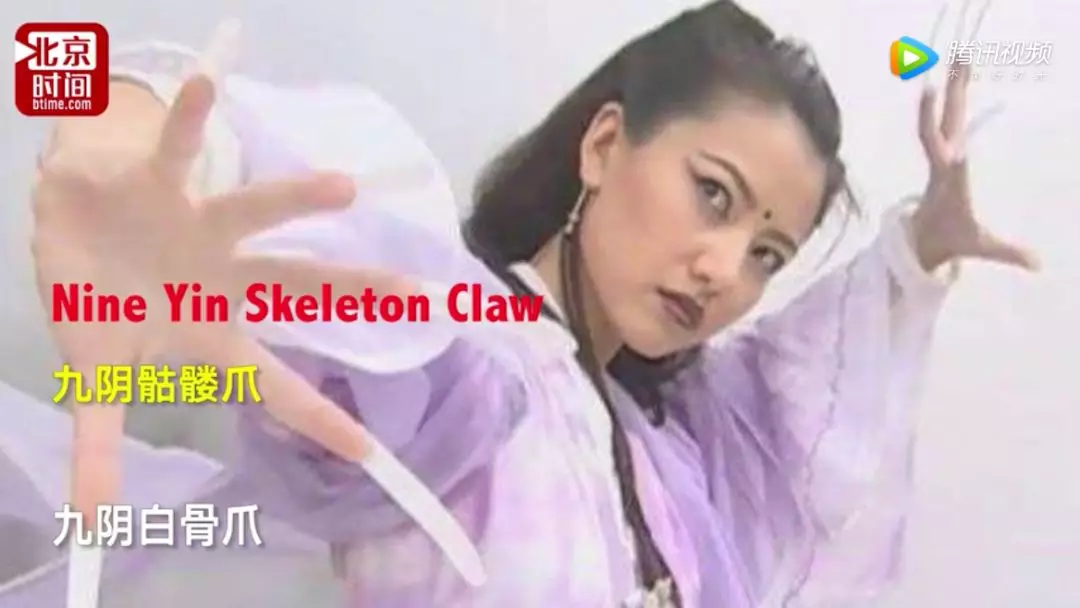
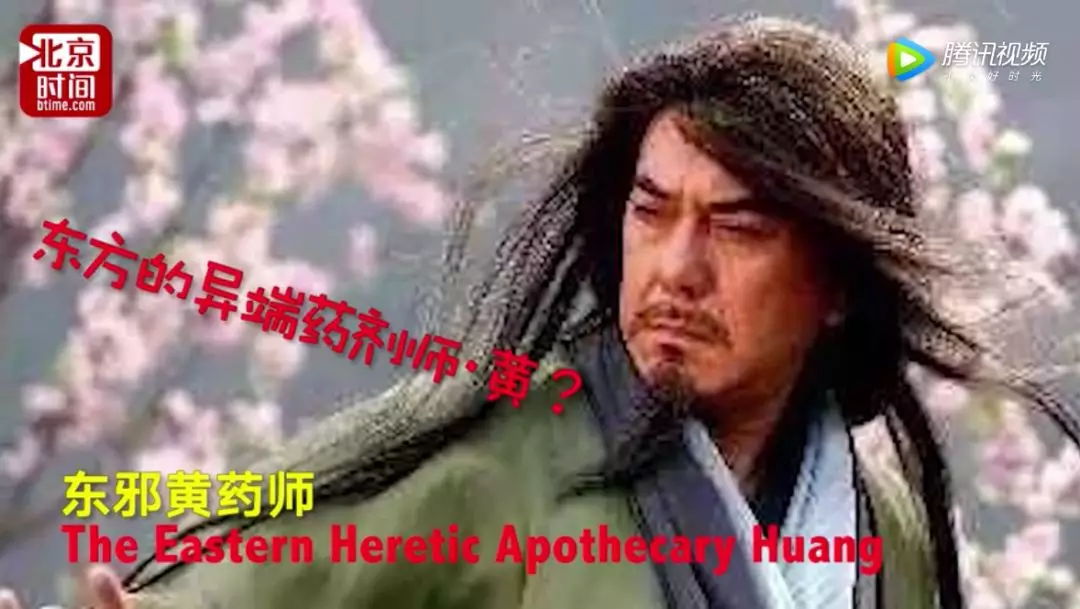
(截屏via北京时间)

所以……小到语言字词、阅读习惯,大到文学风格、文化背景,中西方之间的鸿沟,真不是金庸先生凭一己之力能填上的。
正如作者所总结的——
The problem of getting the works of Louis Cha across the cultural gulf and accepted in the Western world is not going to be solved any time soon. Yes, they are popular novels. But they are also deeply reflective of Chinese culture, with deep roots in Chinese history, language and nuance.
让金庸的作品跨越文化鸿沟,并被西方世界所接受,这个问题无法在短期内得到解决。尽管金庸写的都是通俗小说, 但这些小说也深深映射了中国文化,并深深根植于中国的历史、语言和细微的玄妙之中。
▲I translated Chinese writer Louis Cha ‘Jin Yong’, here’s why he never caught on in the West
 Unitrans世联翻译公司在您身边,离您近的翻译公司,心贴心的专业服务,专业的全球语言翻译与信息解决方案供应商,专业翻译机构品牌。无论在本地,国内还是海外,我们的专业、星级体贴服务,为您的事业加速!世联翻译公司在北京、上海、深圳等国际交往城市设有翻译基地,业务覆盖全国城市。每天有近百万字节的信息和贸易通过世联走向全球!积累了大量政商用户数据,翻译人才库数据,多语种语料库大数据。世联品牌和服务品质已得到政务防务和国际组织、跨国公司和大中型企业等近万用户的认可。 专业翻译公司,北京翻译公司,上海翻译公司,英文翻译,日文翻译,韩语翻译,翻译公司排行榜,翻译公司收费价格表,翻译公司收费标准,翻译公司北京,翻译公司上海。
Unitrans世联翻译公司在您身边,离您近的翻译公司,心贴心的专业服务,专业的全球语言翻译与信息解决方案供应商,专业翻译机构品牌。无论在本地,国内还是海外,我们的专业、星级体贴服务,为您的事业加速!世联翻译公司在北京、上海、深圳等国际交往城市设有翻译基地,业务覆盖全国城市。每天有近百万字节的信息和贸易通过世联走向全球!积累了大量政商用户数据,翻译人才库数据,多语种语料库大数据。世联品牌和服务品质已得到政务防务和国际组织、跨国公司和大中型企业等近万用户的认可。 专业翻译公司,北京翻译公司,上海翻译公司,英文翻译,日文翻译,韩语翻译,翻译公司排行榜,翻译公司收费价格表,翻译公司收费标准,翻译公司北京,翻译公司上海。




